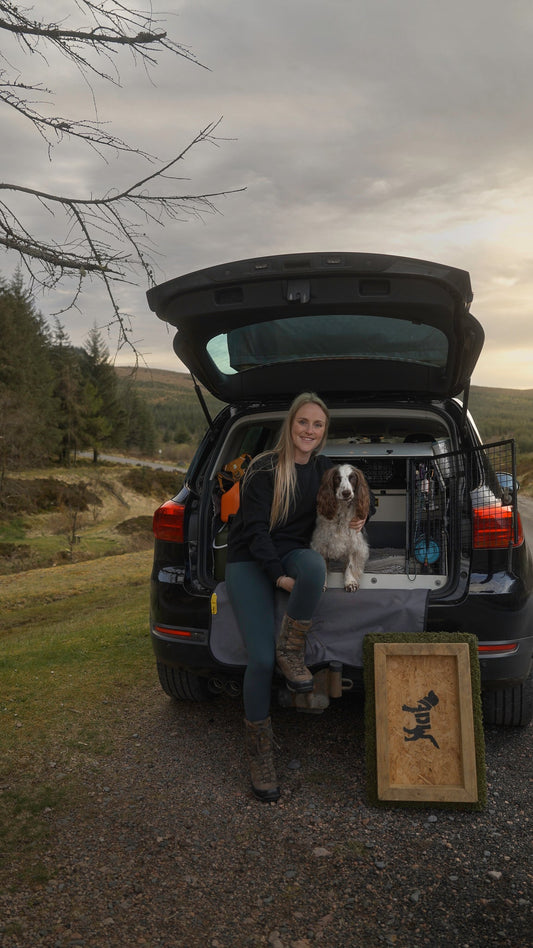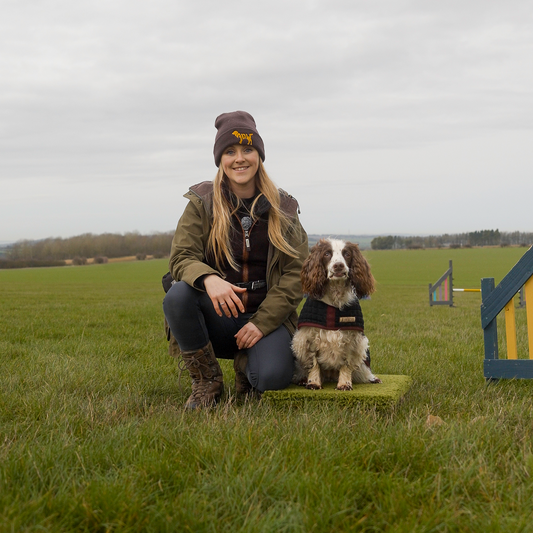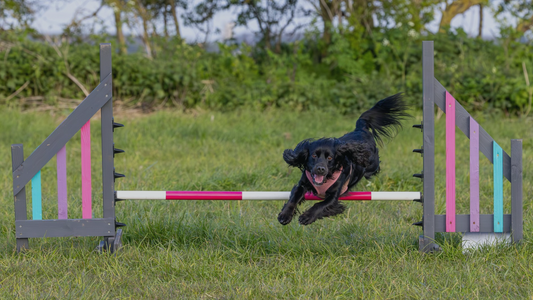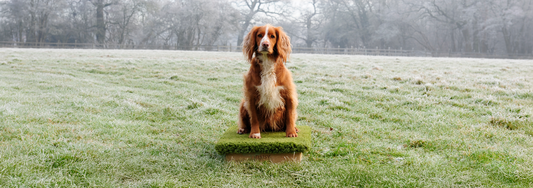Training techniques not working in new places
“Thanks for the email on loose lead walking!
Your instructions below work brilliantly around our local area, but as soon as we go somewhere different/more exciting he just isn't interested in the food or what I'm saying to him. I've always found this my biggest challenge with training as he's not overly food motivated. He'll work for treats in familiar areas (garden, driveway, local housing estate, etc.) but as soon as we go anywhere else I struggle to control him on the lead until he's started to calm down, which can take 20-30 minutes.
I feel like I've tried it all: cheese, pate, roast chicken, bacon, liver, sausage, various dog treats, fish biscuits…
Once he's been out on a walk for a while, had a good run and chased his ball, he walks home on the lead perfectly. So I know he can do it!"
Hi, thanks for getting in touch, this is a common FAQ for owners of working breeds. I broke your question into a couple of areas to approach providing some tips:
What’s making him refuse food and what could help
Meal after the walk: an easy fix could be omitting his meal before any walks/training and seeing if his food motivation increases.
Anxiety and natural remedies: having worked with him, I know he’s got a history of separation anxiety and one consideration was anxiety may also surround going to new places and meeting new people?
When a dog is over-aroused, their fight or flight response means their blood goes to their muscles and away from their stomach, meaning food is lower on the agenda which could be why he's refusing food.If he were my dog, I might consider trying some remedies known to relieve stress and anxiety.
A few to think about are calming teas such as camomile and lavender can be brewed, cooled and added to your dogs’ food prior to serving or adding ashwagandha supplement to their meals (Rodney Habib & Dr Karen Shaw Becker with Khristin Loberg, 2021)
The second angle is some training tips:
Proof in different environments:
What's different about the new location than the local area?
It could be more exciting? Dogs are very context-specific, which means when they learn a skill like loose lead walking, they learn it in the location that you train in. And to proof that behaviour, you have to incrementally take it to more exciting places.
So If your dog fails in one location, think about how you can take it down a step or take the training back to basics in that area.
Here’s an example of loose lead walking levels for my spaniel would look like:

Consistency & quality over quantity:
Do you have zero tolerance for pulling?
That means if the lead goes taught, you stop walking and bring your dog back to the heel position (read a guide on building value in this HERE)
If not, you have two options:
- Adopt a zero-tolerance approach and only move forward if you have no pulling. This might mean you only go a couple of steps before you stop and reset, then continue. But this is where the mantra “quality over quantity” comes in. No matter the distance you travel, your dog will have been out of your house for the same amount of time and engaged in mental stimulation through training. It'd be better to set clear boundaries with an approach like this than being dragged around the block for 20 minutes and compounding the problem of pulling.
- Alternatively, I understand that there going to be times when you to get from A to B. If you cannot dedicate time to training your dog may be confused why the rules change and they are allowed to pull when you insist on loose-lead walking other times. So how are you going to communicate when your criteria shifts? I’d suggest different equipment. For example: Can’t pull = lead on collar or back clip on the harness. Can pull = lead on front clip on the harness. It will feel different for your dog and they'll be able to differentiate why your criteria have changed.
Hope that helps!
Bibliography
Rodney Habib & Dr Karen Shaw Becker with Khristin Loberg. (2021). The Forever Dog. Harper Collins Publishers.
About the author:
Hi 👋 I’m Emma, accredited as a professional dog trainer by the Institute of Modern Dog Trainers (IMDT). I help owners of energetic dogs achieve the dog-owning life they envisioned by providing robust obedience & agility training for dogs in Balsham and Barton, near Cambridge.
Disclaimer: The content of this article does not include personalised advice and is for information purposes only. If you need individual advice or other enquiries please click here to get in contact or if you're not local to Anglian Dog Works, you can find a trainer in your area by going to the IMDT website: https://www.imdt.uk.com/find-a-qualified-imdt-trainer






